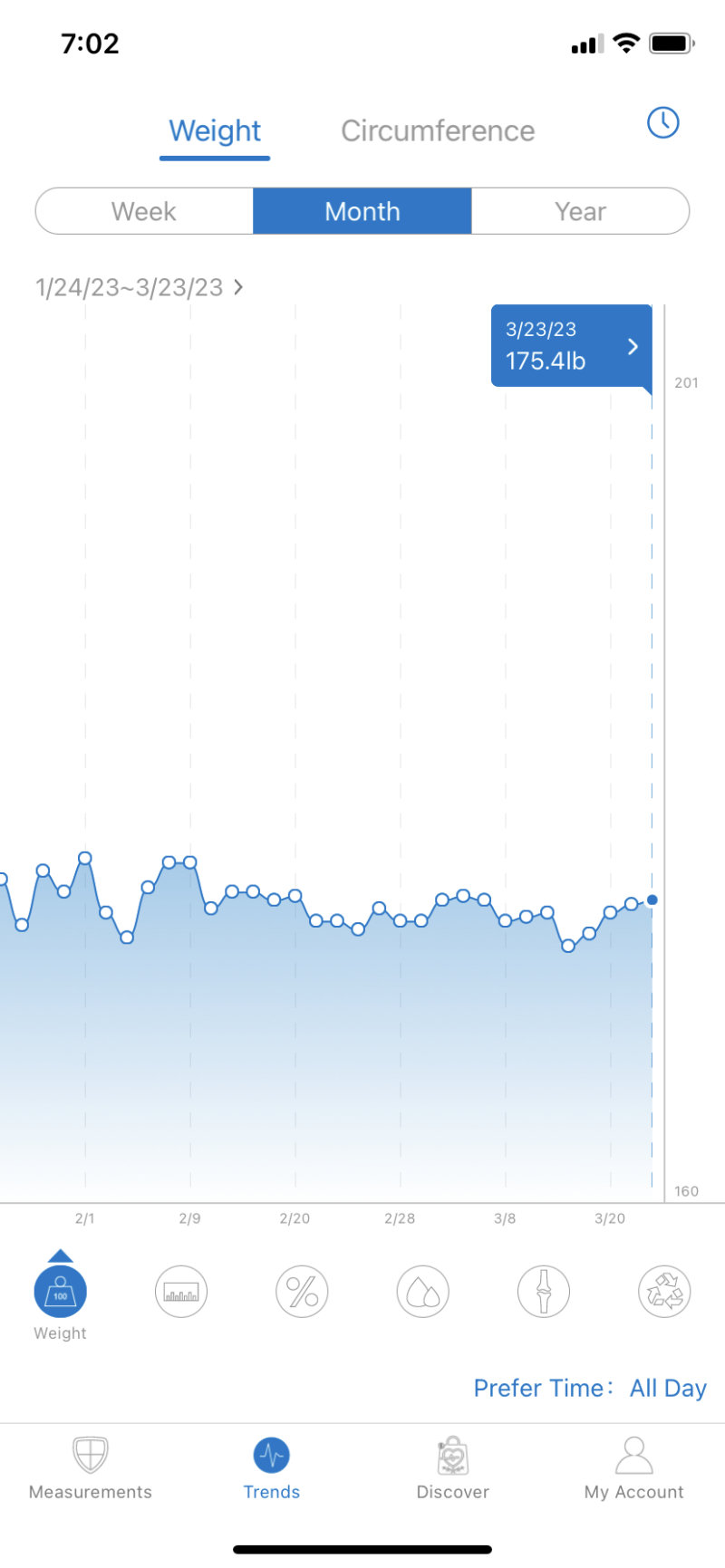Whether you’re trying to decrease, increase, or maintain your current weight, actually keeping track of your weight can prove more difficult than most would think. Fortunately, the sometimes wild variances that you may see on the scale between weigh-ins have a logical background and, therefore, can be mostly avoided if done correctly.
In terms of the actual number showing up on the scale, there are many inputs that can cause significant swings during the course of the day or week. For the most part, once you know what to look for, these variables aren’t tough to spot – generally, I consider these 4 items to be the most significant contributors and easiest to control:
- Time since you ate last meal
- Hydration level/water retention – how much water is your body currently holding? This can be impacted by both how much liquid you’ve drank as well as how much sodium you’ve eaten over the course of a day
- Clothing you are wearing
- Time since you last went to the bathroom
With that in mind, controlling for these variables should be the most important factor when considering how and when to weigh yourself so that you can get more accurate and consistent numbers between weigh-ins. While this won’t be perfect every time, by utilizing the below protocol, you should be able to effectively control for the major variables and get mostly consistent weigh-ins on most days to allow you to track towards whatever weight related goal you may have:
- Always weight yourself first thing in the morning before eating or drinking anything
- Wake up, go to the bathroom, and immediately weight yourself
- I wouldn't even bother weighing in at other times of the day - it is too hard to control these inputs once you start eating/drinking
- Wear roughly the same clothing every time (probably whatever you sleep in to simplify this) – doesn’t matter what it is, just needs to be the same/similar so this doesn’t have an impact
- Keep track of these numbers in an app, journal, wherever – use a weekly average to track progress rather than single measurements
- If you get a measurement that is off by a significant degree (5+ pounds), throw that data point out
- A good example of when this could happen is after a night of heavy drinking – your body holds onto a lot of this liquid and can significantly throw your weight off
- You can also throw this number out (or skip a weight in) if your daily routine was significantly off for a day - went to bed/ate very late or being sick are some examples
Personally, I have been doing this for almost 3 years now - below are a few snapshots of the data that I have over that time. I've included 3 reference points out of my data:
- Past 2 months, which have been stready since I am not trying to do anything with my weight right now
- My high point from the early pandemic days when I first started training and paying attention to this kind of stuff
- My low point, right after the Ironman in September - it took a couple weeks of eating like a monster to get back to my baseline after that race!
In case you are wondering, this is off of the Renpho app, which automatically logs your data every time you use the scale - that obviously makes tracking simple!



Utilizing this protocol is a great way to control for as many variables as possible when it comes to keeping track of your weight. On top of that, using averages over time instead of single data points will further eliminate day to day variances and give you the best chance of keeping an accurate record of your weight over time.
While you may not have any specific weight related goal, there could still be some utility in keeping tracking of your weight on an at least semi-regular basis, which could even just be weekly. Doing so could be helpful in avoiding accidental weight gain/loss but also just to use as a checkpoint to ensure that you are doing a good job balancing the calories you are eating and expending over the course of the days and weeks. You will become more and more in sync with your energy balance, which will make keeping that balance easier over time!